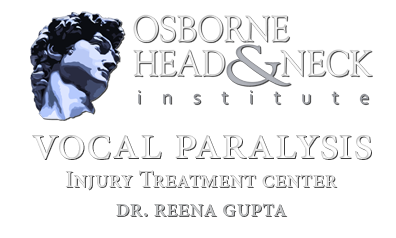Voice therapy is a specialized form of speech therapy that involves teaching correct usage of the vocal cords and voice muscles. Voice therapy can be provided by any certified speech pathologist. However, the most effective therapy is given by a speech therapist who has sub-specialty training in voice.
what is the difference between speech therapy and voice therapy?
Speech therapy is a generalized form of therapy and may include therapy for articulation problems, speech recovery after strokes, etc. A speech therapist who focuses on these tasks is usually less able to provide the kind of therapy that a professional voice user needs.
A voice therapist is a speech therapist who specializes in professional voice care. This means they are able to teach an already skilled voice user additional techniques for improving voice use. They understand voice physiology and can fine-tune a professional voice user’s skills.
who needs voice therapy?
Anyone with voice symptoms can benefit from voice therapy. Even those with a major vocal injury, such as paralysis or a vocal polyp, can benefit from therapy. Therapy involves education about the voice and the educated voice user is more able to adapt to symptoms and meet vocal challenges.
i am already a skilled singer. why would i need therapy?
Being a skilled singer and being a skilled voice user are often different. A talented singer usually exhibits excellent technique while they are singing. However, when they speak, that technique slips and injuries may occur. Voice therapy focuses on working the speaking and singing voice, creating a bridge between the two that enables the voice user to be symptom-free.
how long do i have to do voice therapy?
Most commonly, voice therapy occurs weekly, for 1 hour at a time. Most professional voice users see rapid improvement in the first 4-6 sessions. Those who are less familiar with voice use may require 10-12 sessions.


